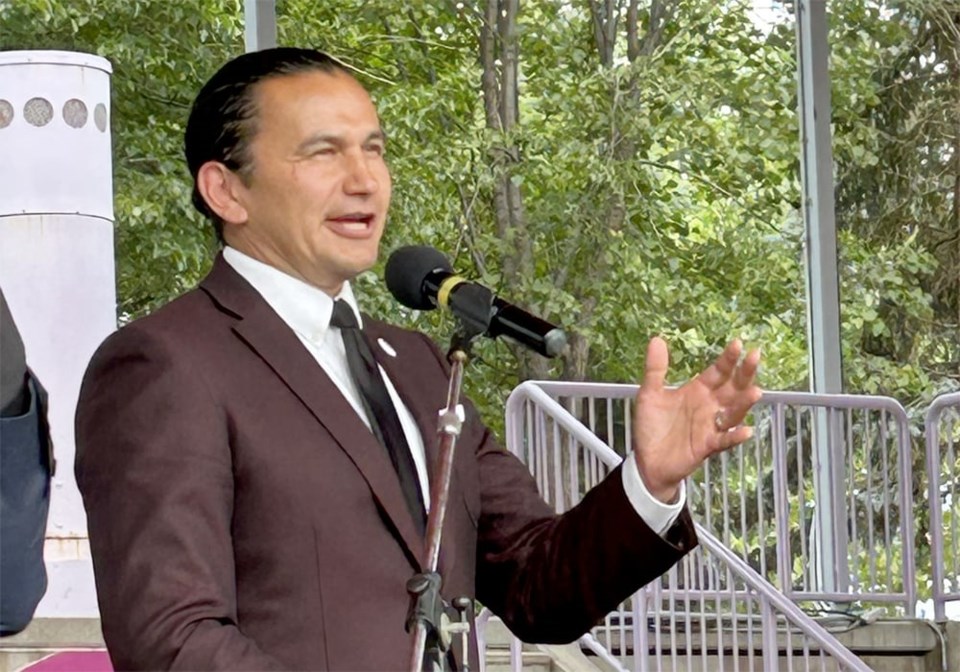On Tuesday (Oct. 3), the voters of Manitoba elected their first First Nations premier as journalist, author, activist, university administrator and musician Wab Kinew led his New Democratic Party to a majority government.
As a result, he should have a full term to try to implement their election promises. This opinion piece, however, is not about those election promises or whether I think the election results are good or bad. One can talk about subject matter and find it interesting without supporting it or agreeing with those who do.
Wabanakwut Kinew is the first First Nations premier of Manitoba. That is true, without a doubt. He is, however, not the first Indigenous premier of Manitoba. The noun Indigenous refers to three groups in Canada (First Nations, Métis, and Inuit) and Manitoba has had one, if not two Métis premiers: Louis Riel and John Norquay.
Plenty has been written and said about Louis Riel and I am not going to try to capture it all here. What is important, however, is that he led the provisional government that led the Manitoba Act and the creation of the Province of Manitoba and is often considered to be Manitoba’s Father of Confederation. It has even been proposed that he be recognized as the province’s honourary first premier.
John Norquay, on the other hand, is less well known, at least until this election, but he was the fifth premier of the province from 1878 to 1887. Like many early provincial premiers, he was non-partisan as a politician, although it is known that he did support the Conservatives federally and vice versa. This support was part of his downfall as premier as he found himself in conflict with Prime Minister John A MacDonald over railway charters and the Canadian Pacific monopoly.
Manitoba was not the only province to have a Métis premier. Here in British Columbia for example, there was Simon Fraser Tolmie, who governed from 1928 to 1933. Given his name, it should come as no surprise that he came from an established fur trade family and through his mother he had Spokane ancestry.
Contrary to contemporary stereotypes about the political leanings of Indigenous individuals, he was also British Columbia’s last Conservative premier and firmly believed that the best way to govern was through established business practices. It was the Great Depression that ended his time as premier as his party split and failed to run a coordinated election in 1933.
If Tolmie was the last Conservative premier in British Columbia, then Peter Lougheed was the first conservative, or rather Progressive Conservative, premier of Alberta. Again, stereotypes are somewhat misleading. Alberta had Liberal premiers from 1905 to 1925, United Farmers of Alberta (UFA) premiers from 1925 to 1935, and Social Credit premiers from 1935 to 1971.
And while it could be argued the Socreds were conservative, it should be remembered that initially Alberta Social Credit tried to implement the rather radical economic policies of social credit as an economic theory, a decision that led to conflict with the federal government.
Indeed, Lougheed, like many other Alberta premiers, often found himself in conflict with the federal government, and he is perhaps best known for fighting Pierre Elliot Trudeau’s National Energy Program. Again, stereotypes are misleading.
And then there are of course the territories, often overlooked and unlike the provinces not sovereign members of the Canadian federation.
That being said, the oldest of the territories, the Northwest Territories has had First Nations, Métis, and Inuit premiers and their current premier, Caroline Cochrane is Métis. This situation is the opposite in the Yukon, where all of the premiers have been non-Indigenous.
And then there is Nunavut, where all the premiers have been Inuit since its creation in 1999. Not that that is guaranteed per se. According to Elections Nunavut, anyone can be a candidate if they can vote in the territory and in order to vote you need to be a Canadian citizen, 18 years or older, and a resident of the territory for one year.
So, congratulations to Wab Kinew for being elected Manitoba’s first First Nations premier. The people have spoken and like every other politician he now gets the chance to try to make things better.
Daniel Sims is a member of the Tsay Keh Dene First Nation. He currently works as an associate professor at the University of Northern B.C. and is academic co-lead of the National Collaborating Centre for Indigenous Health.



